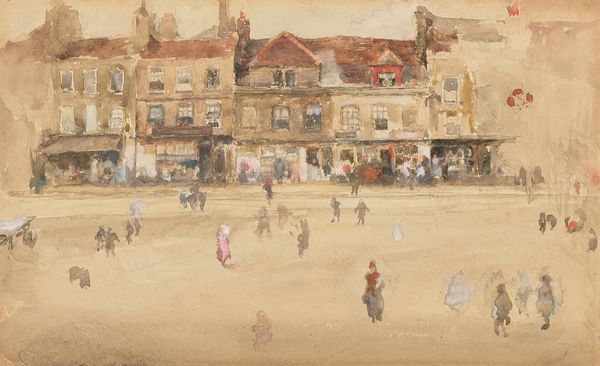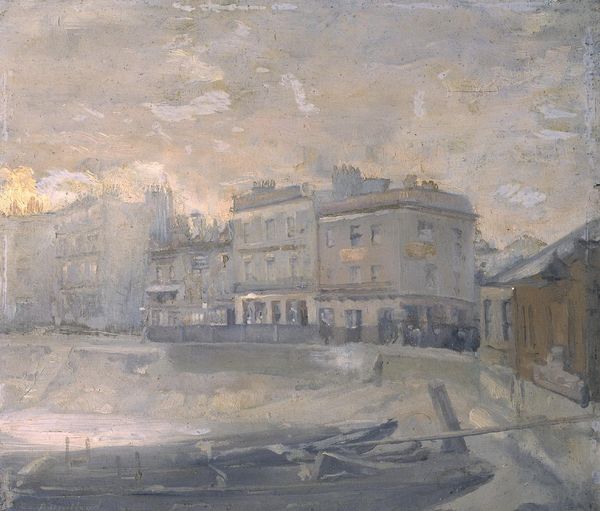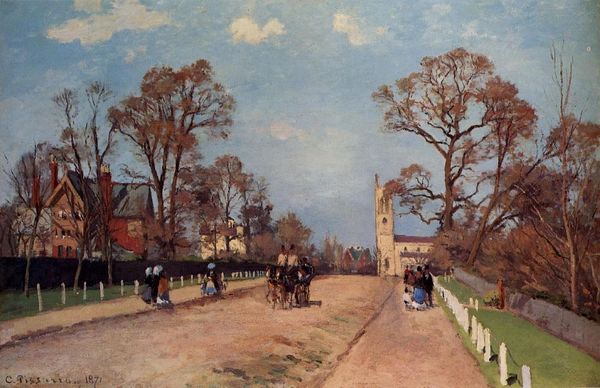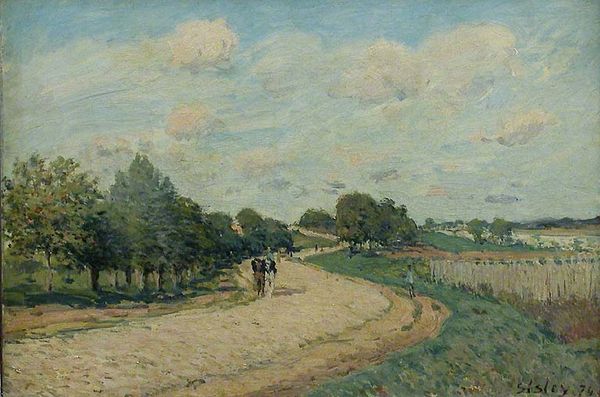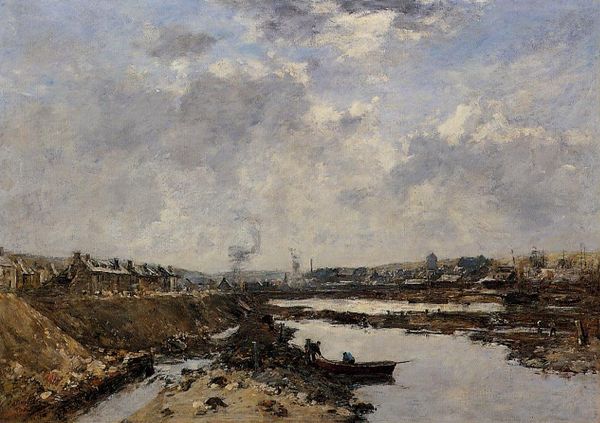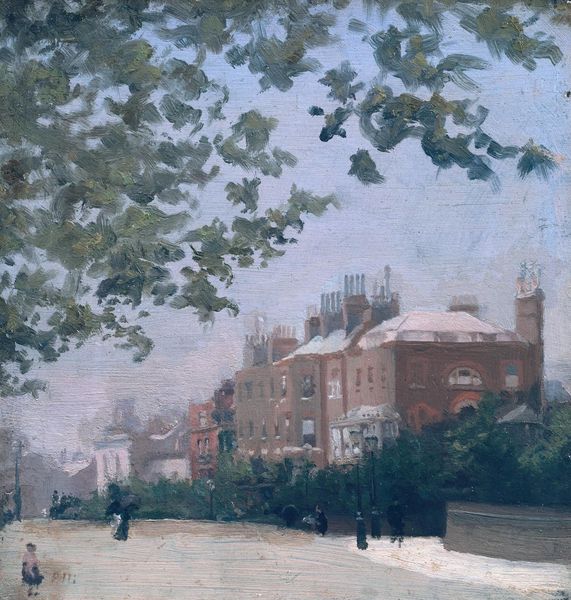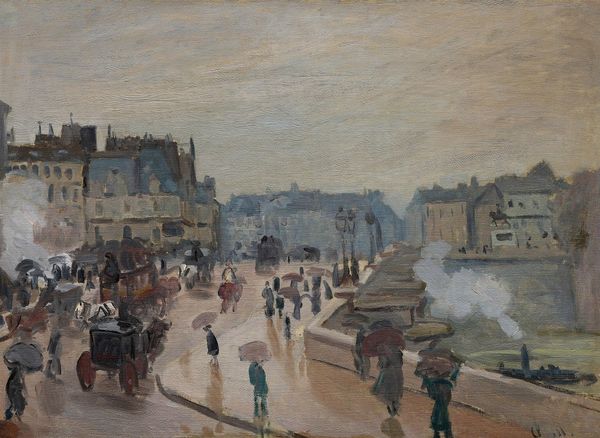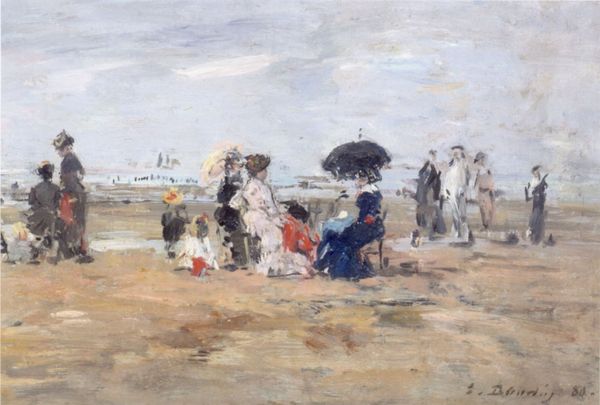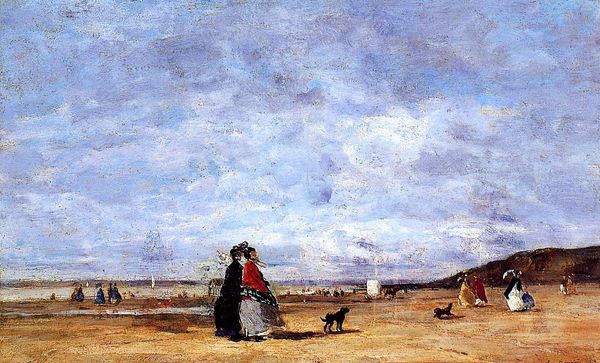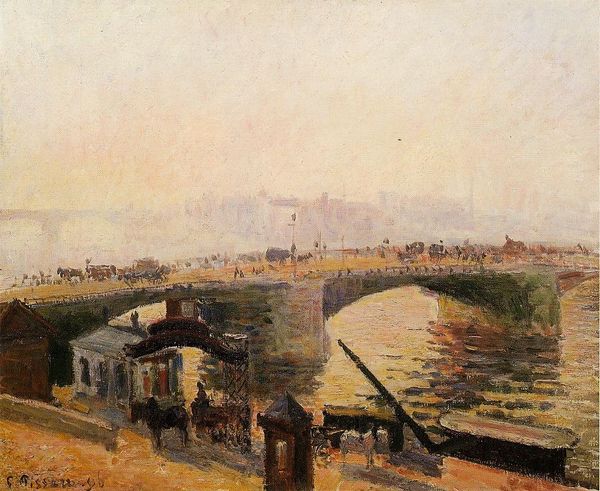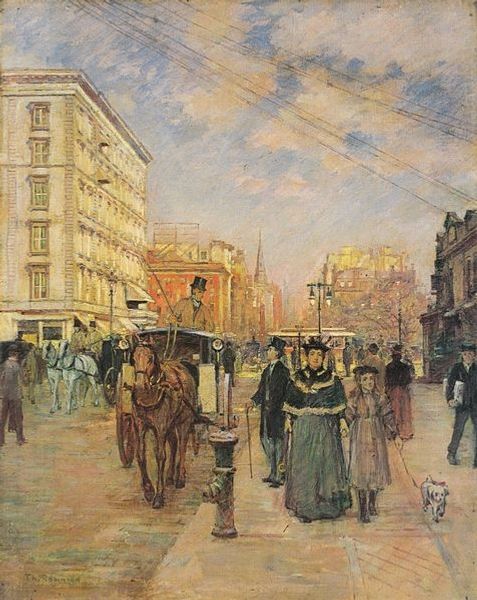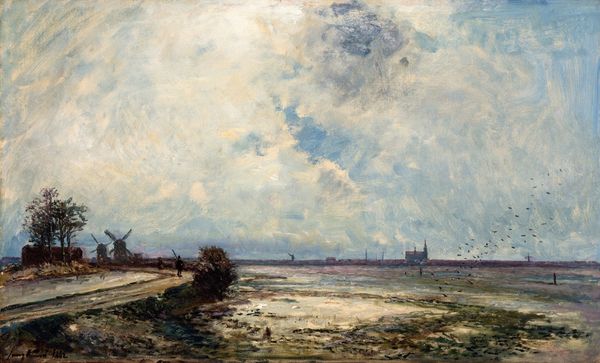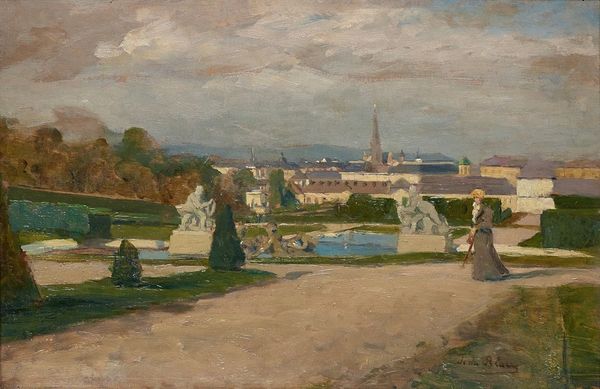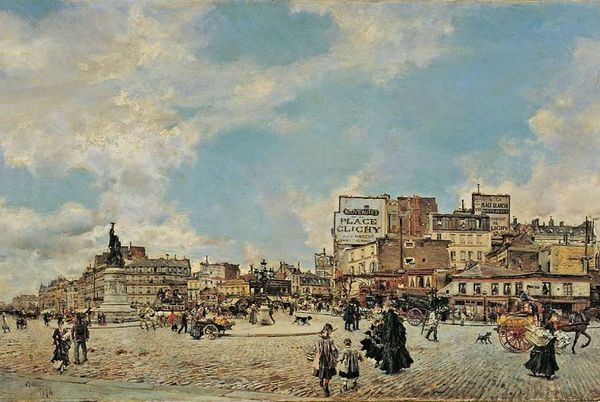
#
acrylic
#
abstract painting
#
painted
#
possibly oil pastel
#
oil painting
#
acrylic on canvas
#
underpainting
#
painterly
#
painting painterly
#
watercolor
Copyright: Public domain
Charles Conder made this oil painting, “Dieppe,” sometime around the turn of the century. As with any painting, the material qualities are essential to its impact. Look closely, and you can see the textured surface, built up through layers of pigment. Conder likely chose oil paint for its ability to capture subtle shifts in light and atmosphere, which was vital for the Impressionist style. Notice the composition; a beach scene populated by figures, painted with loose brushstrokes and a muted palette. This was a time when artists were exploring new ways of representing modern life, and industrialization had changed how artworks were both made and circulated. The availability of mass-produced paints allowed artists to experiment with color in unprecedented ways. By focusing on materials, processes, and the social context in which artworks are created, we can challenge the traditional hierarchy between fine art and craft, and gain a richer understanding of the work.
Comments
No comments
Be the first to comment and join the conversation on the ultimate creative platform.
